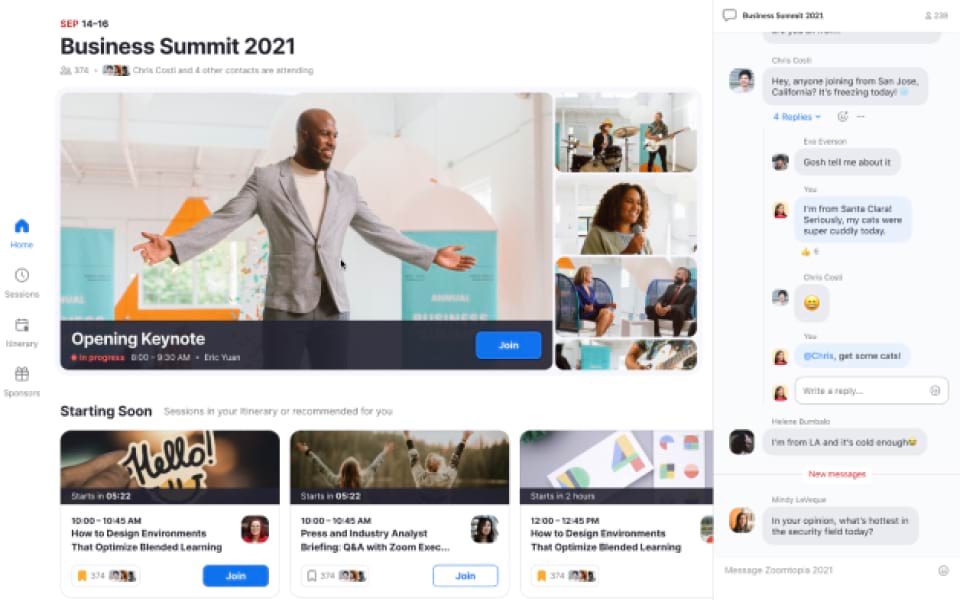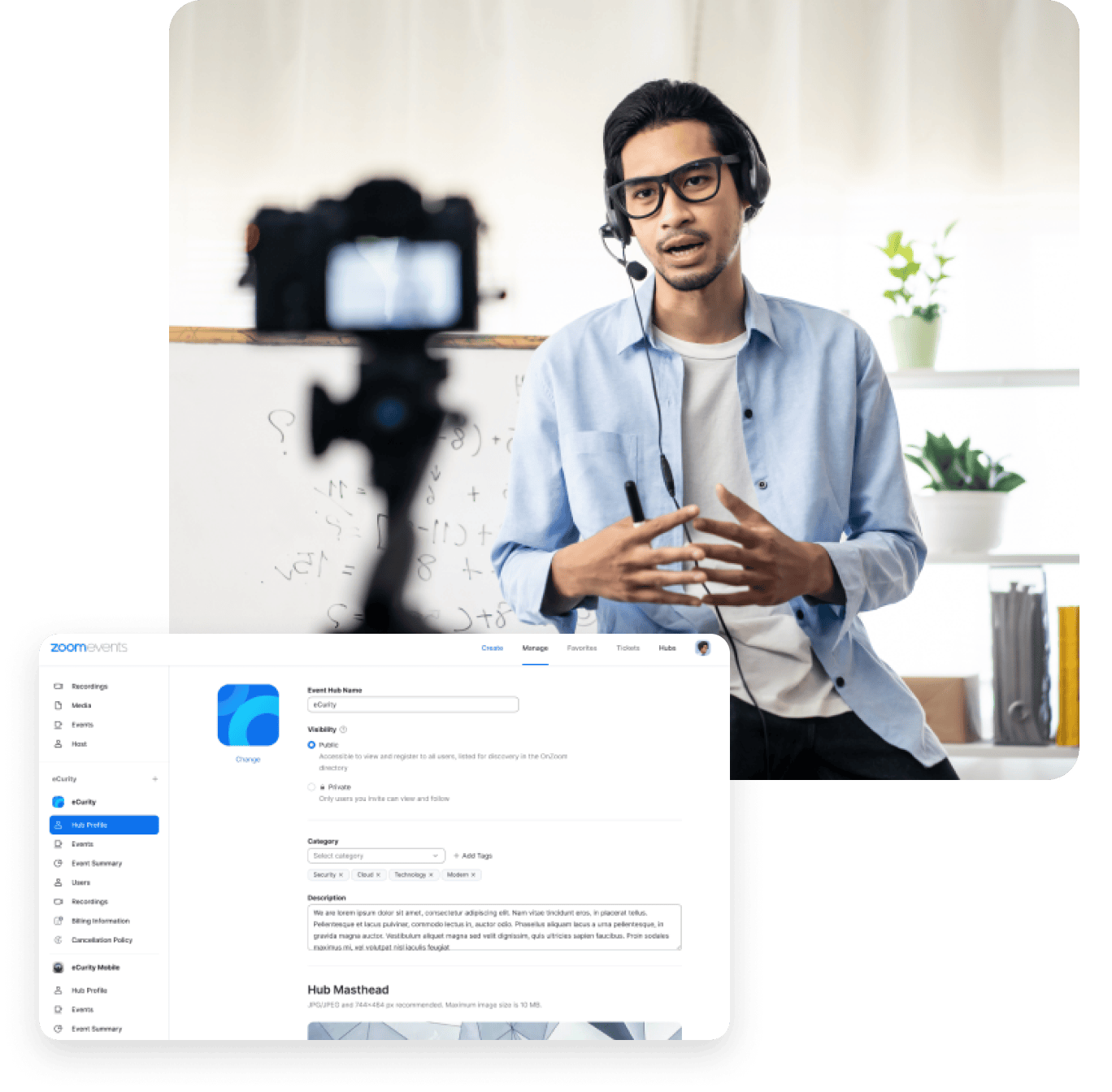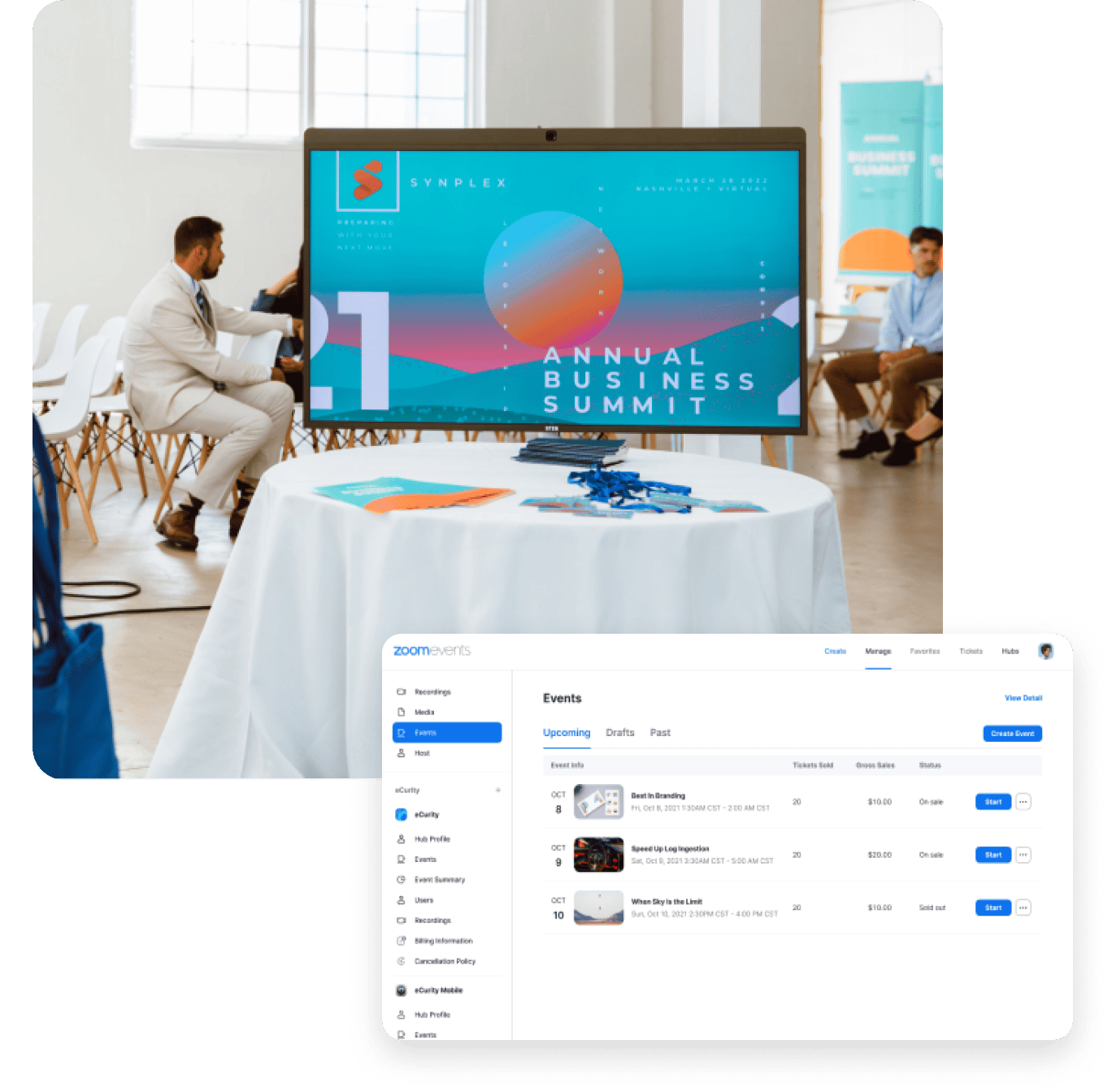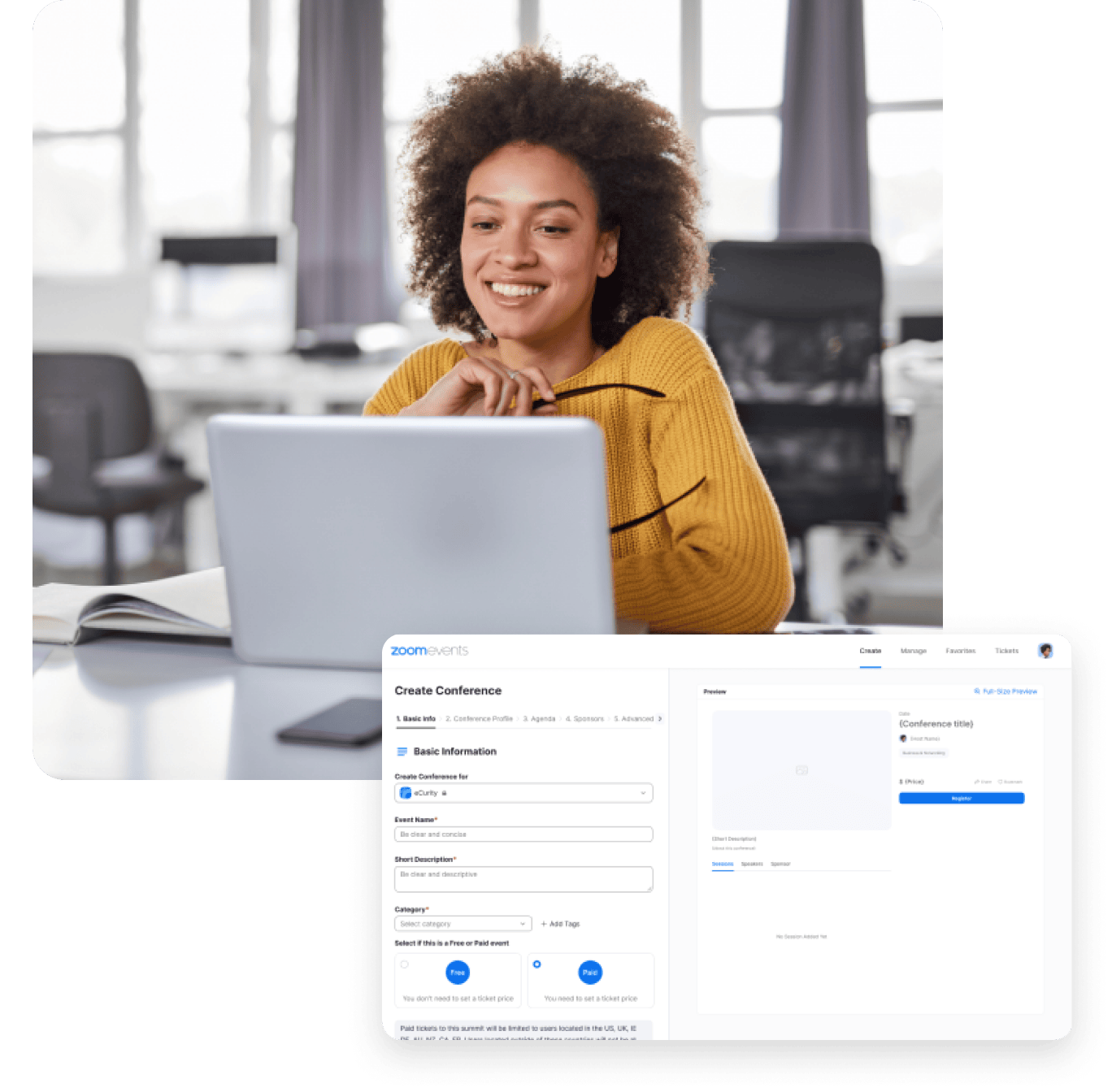Traditional conferences and events are an excellent way to connect with your customers, share ideas, and showcase new products and features. However, many event organizations are taking their events virtual to expand their audience.





The platform should include these capabilities:


Get started with Zoom Events
To get started hosting your next virtual event, purchase your Zoom Events license, then visit events.zoom.us to sign into your account. Once you’re logged in, you can begin setting up your hub under the Manage tab, and then get started building your first Event, Summit, or Conference using the Create tab.
